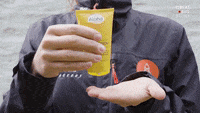A Fashion & Lifestyle blog by Tobi.com, featuring fashion inspiration, beauty tips & tricks, travel guides, delicious recipes, fitness & health routines and more!

 PREV
PREV

Another Mimosa, Please! ? 5 Trending Brunch Outfits To Wear This Weekend
Skincare 101: Why You Should Wear SPF Every Day
Written by Elaine Tu
You can already guess by the title that wearing SPF is super important for your skin health.
Using sunscreen helps to prevent premature aging, sun spots or age spots, skin discoloration, acne scars, and prevents skin cancer. Sure, you know all this stuff, but did you know that you should be wearing sunscreen or SPF every day? Yes, that’s right. You should have sun protection EVERY TIME you step outside—even if it’s just to get to your car or to get the mail.
It might sound like I’m being dramatic, but I’m not. If you’ve looked closely at your skin and have noticed darker spots or noticed that your pimples very often become acne scars that don’t go away for weeks, it’s probably because you have not been protecting your skin from the sun properly.
We get it, we love the sun too, and sometimes it’s just hard to avoid it. We’re not saying you should stay out of the sun, but rather, you should know how to properly protect it from the sun’s harmful ultraviolet (UV) radiation so you can enjoy the sun without increasing your risk of skin cancer. Did you know that your risk of skin cancer increases with every sunburn? Yeesh.
 Source: giphy
Source: giphy
What will happen with prolonged sun exposure without SPF protection?
 source: shutterstock
source: shutterstock
- Discoloration or uneven skin tone – UV rays can cause your skin to be patchy or uneven
- Hyperpigmentation and acne scars – if you suffer from acne or breakouts especially, a lack of sun protection can cause them to darken. This makes it more difficult to lighten over time.
- Skin cancer – if you think you’re safe, you’re not. If your skin is exposed to the sun without protection, you will be at risk for skin cancers like melanoma, basal cell cancer, and squamous cell carcinoma.
- Premature aging – UV rays can speed up signs of aging like wrinkles, liver spots, age spots, and break down your skin’s elasticity and degrade texture of your skin.
With that said, I’m not going to take any chances, are you? Some of these effects are irreversible so it’s definitely better to be safe than sorry when it comes to protection from the sun!
UV rays are the cause of skin cancer
 source: shutterstock
source: shutterstock
SPF, which stands for Sun Protection Factor, is the measure of how effective a sunscreen product is at protecting against UVB rays.
PA is an abbreviation for Protection Grade of UVA established by the Japanese to measure the sunscreen’s basic effectiveness of blocking UVA rays. The levels of PA vary from mild UVA ray protection (PA+), to moderate UVA ray protection (PA++), to highest UVA ray protection (PA+++).
When we refer to the sun’s harmful rays, what we’re referring to are UV rays which include UVB rays and UVA rays.
According to director of dermatologic surgery and dermatology in New Jersey, Dr. Steven Q. Wang MD, UVB radiation plays a major role in skin cancer and is the chief cause of sunburns, and UVA rays accelerate skin aging and contribute to and may initiate skin cancers.
Use a minimum of SPF 30
SPF 30 has been found to be the minimum SPF protection recommended by dermatologists. Some dermatologists suggest sun protection between SPF 30-50. Using one with the highest PA rating is also recommended.
Anything above SPF 50 does not provide the protection that a higher number would imply. You should be reapplying sunblock every 2 hours to stay protected regardless of how high the SPF is on the label, and more often if you are wet or perspiring.
Looking for active sunscreen ingredients
Mineral-based sunscreens are “natural” sunscreens that contain main zinc oxide or titanium dioxide, and sometimes both, but the debate is out on the effectiveness of those alone, or other sunscreens with chemical agents that have tested higher UV blocking power. UV-blocking ingredients include: zinc oxide, titanium dioxide, avobenzone, ecamsule, and oxybenzone. You can find sunscreens that block both UVB and UVA rays, too. Look for labels that include “multi-spectrum”, “broad spectrum” or “UVA/UVB protection”.
EVERYONE should be using sun protection daily
The sun doesn’t discriminate between people of different skin tones. It is true that individuals with lighter skin, eyes, and hair are at higher risk for skin cancer (this risk is heightened if you get sunburned repeatedly), but individuals with darker skin are at risk for skin cancer too! Whatever color your skin is, you need to wear sunscreen to protect yourself from the sun’s rays. People with lighter skin should be more diligent about reapplying sunscreen throughout the day, especially if you live near the equator where the sun is the harshest.
Use lotions instead of sprays
As a rule of thumb, experts recommend “1 ounce, enough to fill a shot glass,” of sunscreen to be applied 15 minutes before sun exposure. This amount should be enough to cover the exposed areas of your body (this should be adjusted depending on body size). It’s difficult to attain a layer of sunblock thick enough to protect your skin effectively with an aerosol spray, which is why some dermatologists do not recommend sprays.
Your lips need protection too!
Farmer’s lip is not a good look—and it’s bad for your health. Be sure to use a lip balm that contains SPF 30 if you’re going to be out in the sun!
Water, snow & sand can intensify sun damage
These elements can reflect UVB rays and UVA rays, increasing your chance of sunburn. Take extra care when exposing yourself to the sun near these elements. Beaches, deserts, boating trips, and snowy mountains are all examples of situations that call for diligent reapplication of sunscreen.
Clothes offer UV protection
Whenever you can, wear long sleeves, hats, sunglasses and other clothing that will cover your skin from direct sunlight.
Give your face extra love
This is probably the thing I personally advise others to do the most, especially people with acne-prone skin. It’s difficult to lighten or even out skin after the damage is done (trust me, I know first-hand). Acne scars will darken with extended sun exposure and can take months—sometimes years—to get rid of. In addition to aesthetic reasons, sun protection is important for anti-aging and skin health. We all want to look our best, even in old age, right? Unless you have a ton of money saved up for cosmetic surgery, your future self will thank you for protecting your skin now!
I like to use face sunscreen with anywhere from SPF 30-50 with PA+++ daily. I use it alone or under my makeup to protect my skin from the brief periods I am outdoors and on long commutes home. In my skincare routine, I apply face sunscreen after my moisturizer has absorbed. Sometimes I forget to apply the Missha Safe-block, so I have this Supergoop spray to spritz over for that added protection with no need to redo my makeup completely (yes!).
Another tip is to pay special attention to parts of the body that get the most direct sunlight. Commonly, this means making sure you’re reapplying sunblock to areas like your shoulders and arms, which tend to burn more easily than your belly or your legs. You may even have wondered why people put a thick glob of sunblock on their noses, too–no one wants a sunburnt nose! Ouch!
Let’s get that sunscreen on and get out there to enjoy some sunshine!
 Source: giphy
Source: giphy





 source: dermstore.com
source: dermstore.com  source: target
source: target  source: ulta
source: ulta  source: ulta
source: ulta  source: amazon
source: amazon  source: nordstrom
source: nordstrom 






